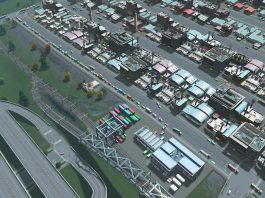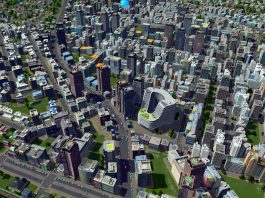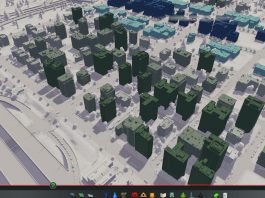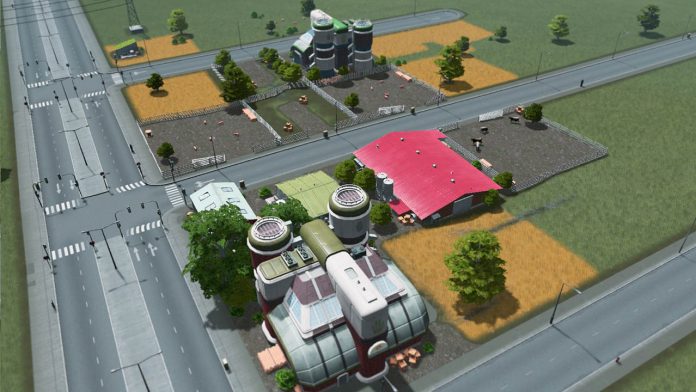
Introduction
[postad]Cities Skylines features industrial specialization. You can have a sector focus on Oil, Ore, Forest or farming. Whereas generic industries can level from 1 to 3 the specialized industries only feature a single level. However with 24 workers they are similar to level 2 generic industry. Each of these specializations has their own tax benefits and cost.
Keep in mind that early game districts will often be too expensive to build roads too. Late game high tech generic industries are cleaner and provide more jobs. So generally they only make sense mid-game.
The specializations
Cities Skylines features the following industrial specialization:
Forest Industry
Forests are a renewable resource giving a modest increase in tax incomes, but also slightly increasing the pollution rate (source: manual).
Farming Industry
Fertile land is a renewable resource that gives a modest increase in tax income without producing extra ground pollution. Instead, the Agriculture Specialization will requires more water and produce more waste water (source: manual).
Ore Industry
Ore is a limited resource that produces more tax income and ground pollution, although not as much as oil industry. Ore industry requires more electricity than usual industry (source: manual).
Oil Industry
Oil is a limited resource that will increase tax income significantly, but it also produces a lot more ground pollution and requires more electricity (source: manual).
Overview of Industry specializations
Let’s take a look at the different pros and cons of the specializations (source: manual).
| Resource type | Renewable | Tax income (compared to generic industry) |
Pollution rate (compared to generic industry) |
Requirements (compared to generic industry) |
| Oil | No | +35% | +30% | Requires 15% more electricity |
| Ore | No | +20% | +20% | Requires 10% more electricity |
| Forest | Yes | +10% | +7% | Requires 7% more electricity |
| Fertile land | Yes | +10% | Doesn’t pollute ground, turns all fresh water used into waste water |
Requires 25% more water |
Keep in mind that while Forest and Fertile land can be re-used but the Oil and Ore deposits are non-renewable. You can run out of those resources. However do not worry; they will be imported when required. However this will lower tax income and increase traffic.
Using industry specialization
Step 1: Find the correct tile
If you want to use industry specialization then you will first have to check if your map actually supports that type of resource. You can do this by clicking the overview button OR by using the resource overlay.
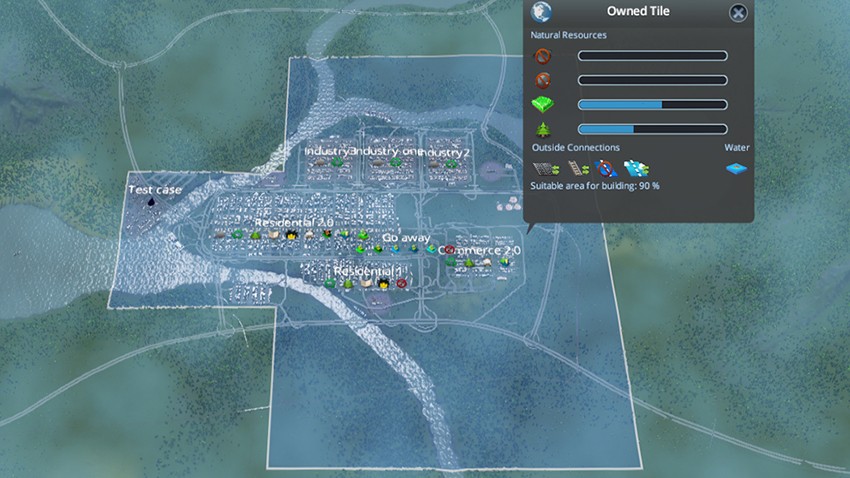
Step 2: Find the location of natural resources
Once you have identified a suitable tile the next step is to find the area that actually has the required resources. Do this by choosing the Natural Resource overlay located on filter menu (second row, 1 up from the bottom).
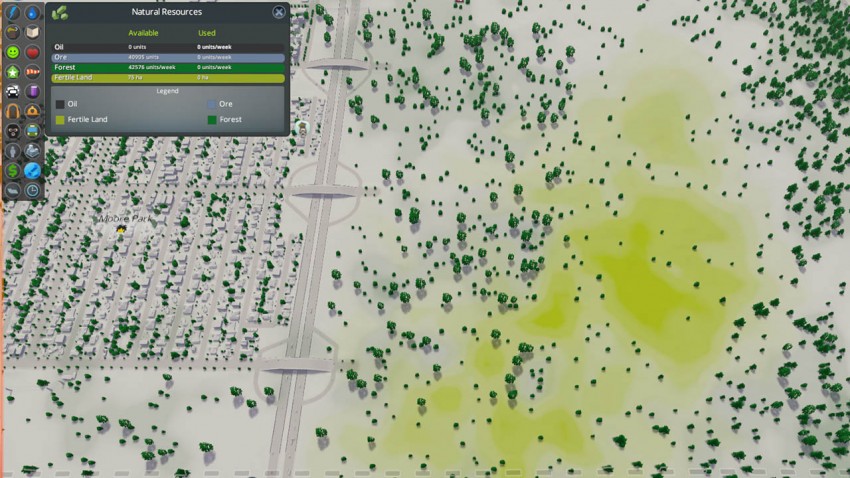
Step 3: Zone and create a district
Try to build a network on top of the natural resource. Now use the district tool to “paint” a district on your new sector.
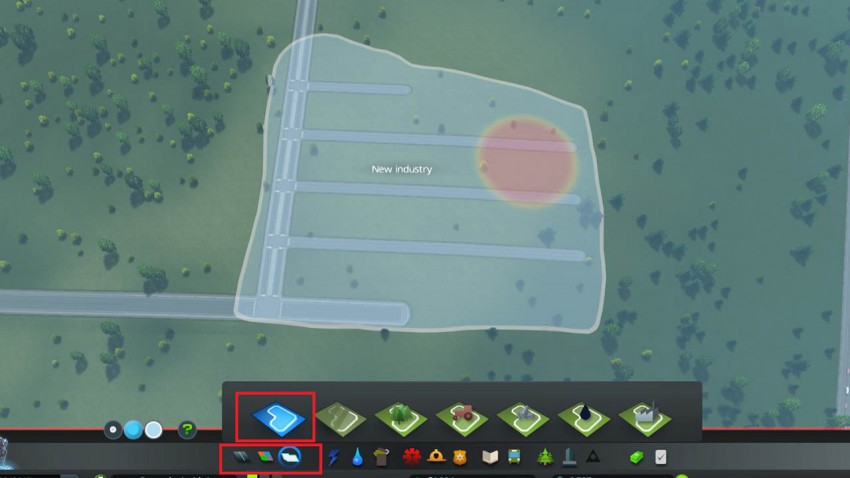
Step 5: Assign an industry specialization to your district
If you press the specialization button and the click the district a little icon will appear below the district’s name.
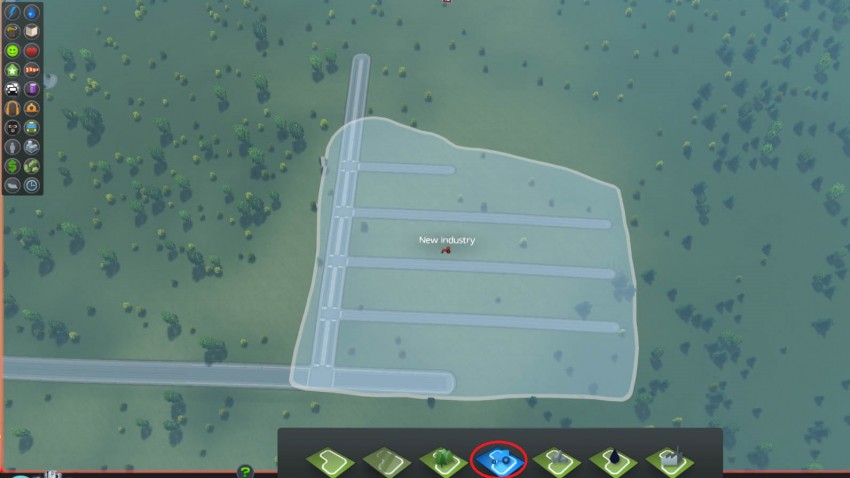
Summary
If everything went well and the demand is there then your specialized resource will start to appear. Keep in mind that all buildings will be sold when you re-assign a new specialty.
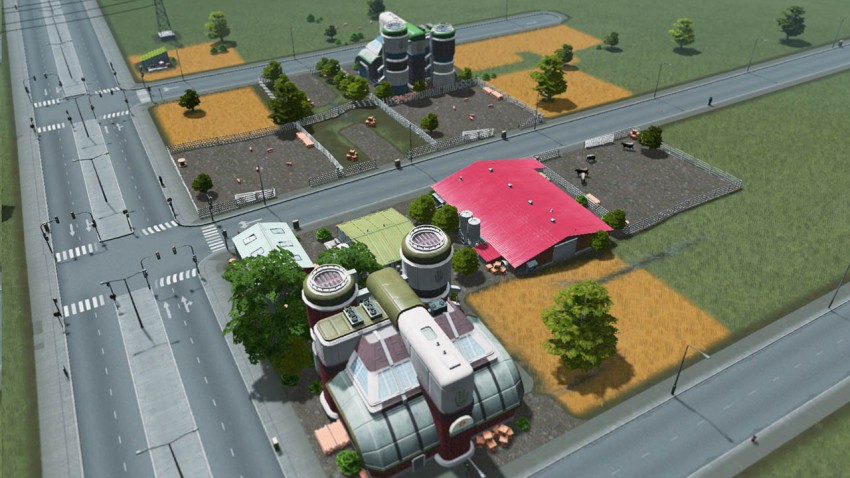
Feel free to post questions or remarks in the comments.

